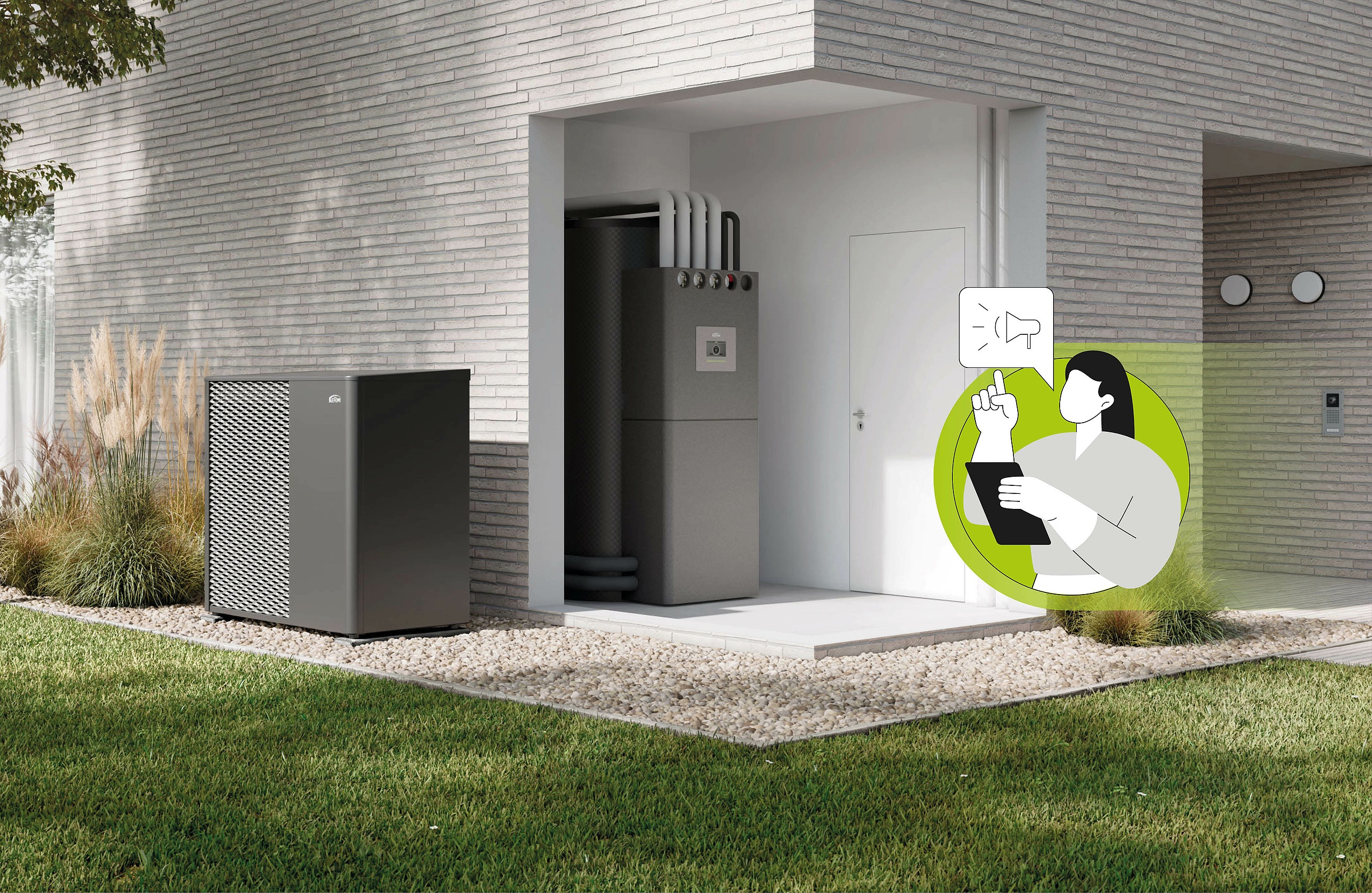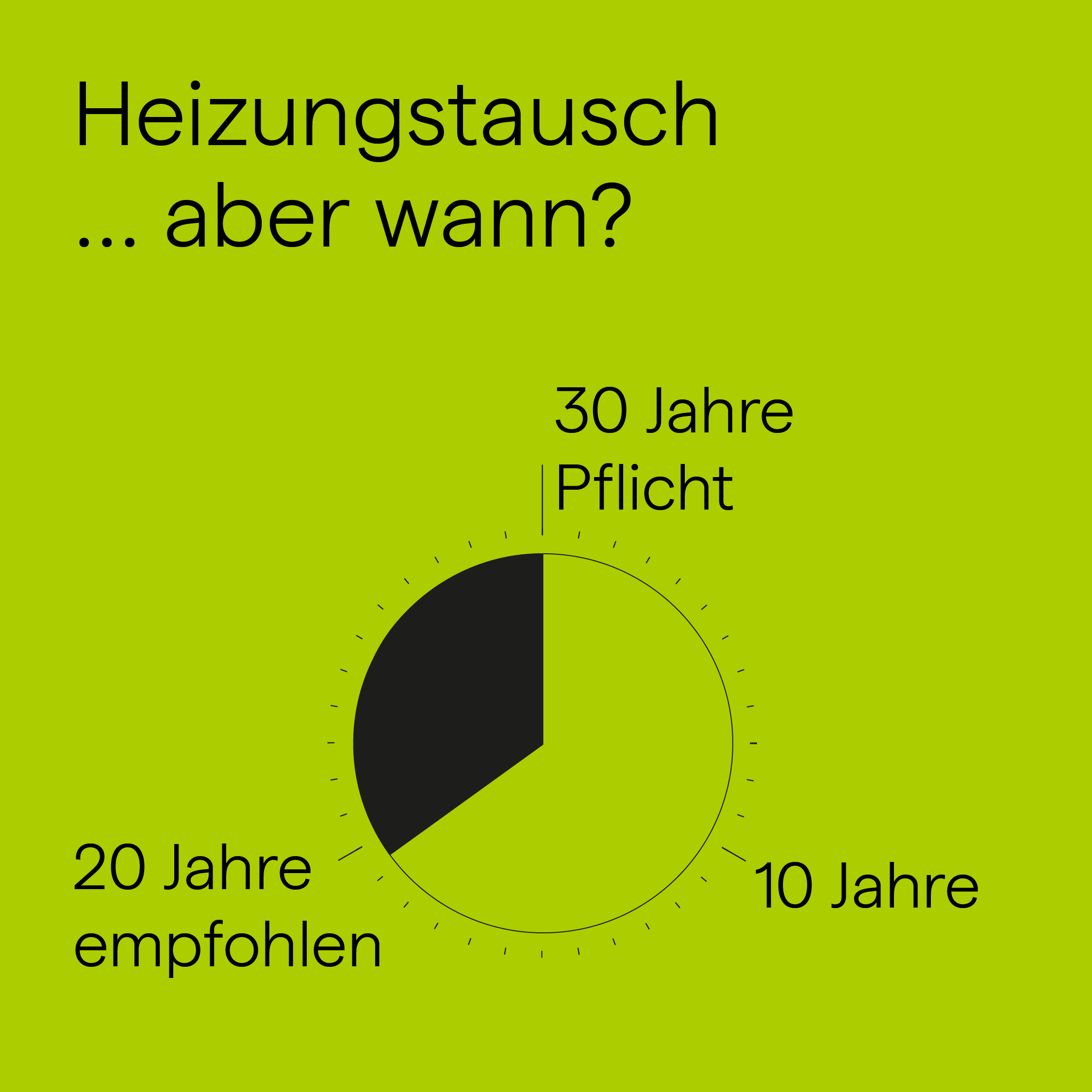Modernisation tip: Replace your heating system

The heating systems in many German basements are technically outdated and no longer meet today's standards of comfort and efficiency: they consume unnecessary amounts of energy and thus lead to high heating costs. Emissions from the combustion of fossil fuels also harm the environment. Good reasons to replace your old heating system. Because no other renovation measure is as efficient as heating modernisation .
Advantages of a new, future-proof heating system
- New heating systems based on renewable energies conserve resources, reduce CO2 emissions and thus contribute to climate protection.
- Modern heating systems work more efficiently and are therefore more economical. This is easy on the wallet in the long term.
- The heat is manifolded efficiently and evenly thanks to the coordinated interaction of the heating components - for cosy comfort in all rooms.
- Attractive subsidies are available from the state for the renewal of heating systems based on renewable energies, so that replacing the heating system pays for itself even more quickly.
You can find more information on the subsidy options here.
When does a heating system need to be replaced?
The fact that the heating technology is outdated and should possibly be replaced can be recognised in everyday life by various signs:
- When frequent repairs are required and the heating no longer works reliably
- If the rooms no longer get really warm
- If the heating system is no longer working efficiently, resulting in unnecessarily high heating costs
- If the chimney sweep finds defects or excessively high exhaust gas values during his inspection
- If the heating system has been in operation for 20 years or longer. Incidentally, replacement is usually mandatory after 30 years at the latest.
Legal obligation to replace the heating system

The obligation to replace a heating system is set out in the Building Energy Act (GEG): According to the November 2020 regulation, most gas and oil heating systems must be replaced 30 years after installation or installation.
The 2024 amendment to the GEG also stipulates a 65% share of renewable energies for newly installed heating systems. The aim behind this legal requirement is to reduce CO2 emissions in Germany.
Although there are exceptions to the obligation to replace heating systems, replacing outdated heating technology is worthwhile in any case - for your wallet and for the environment.
Extra tip: Replacing the heating in summer
Even if you don't necessarily think about heating in summer, the warm season is the ideal time to replace your heating system. This is because the heating system is not in daily use and can be replaced without any major loss of comfort.
After the summer break, you can then benefit from a completely modernised, more energy-efficient heating system during the colder months - and enjoy state-of-the-art heating comfort.
Heating modernisation: measures and costs
A heating system consists of different components - from heat generation and storage to heat distribution. In the KERMI system x-optimised, all components are precisely coordinated and work together perfectly. Together, they offer maximum efficiency increases when modernising heating systems. But each individual modernisation measure also helps to save costs and energy
Switch to heat pump heating
- A heat pump heats with renewable energy - combined with PV electricity and battery storage, it is even up to 100 per cent CO2-neutral.
- This protects the environment and reduces heating costs.
- Air/water heat pumps are simply installed in the boiler room or outside and are easy to retrofit without the need to drill holes in the ground.
Radiator modernisation
- Modern radiators ensure even, efficient heat distribution and can therefore contribute to energy savings
- Design variety from classic steel panel radiators to elegant towel radiators for a contemporary living space design
- Installation is possible without structural alterations thanks to special renovation solutions. Read more about the possibilities of radiator modernisation.
- Many versions available for different requirements: particularly energy-efficient radiators, special steel panel radiators for heat pumps, bathroom radiators, electric radiators. Which radiator is right for you?
To the therm-x2 energy-saving radiators
To the x-flair heat pump radiators
To the KERMI bathroom radiators
To the KERMI electric radiators
Retrofitting underfloor heating
- With their large heating surface, underfloor heating systems ensure pleasant, efficient heat distribution
- They are also an ideal partner for a modern heat pump
- Special underfloor heating systems are easy to retrofit and can be laid on top of the existing floor covering without the need for demolition or breaking work.
Supplement ventilation system
- Residental ventilation systems automatically replace the air and thus help to prevent mould
- At the same time, they prevent valuable heat from escaping to the outside - so rooms do not cool down as a result of ventilation.
- This contributes to the efficiency of the entire heating system
- Decentralised residental ventilation or central ventilation system: Installation is usually possible with little effort, even at a later date.